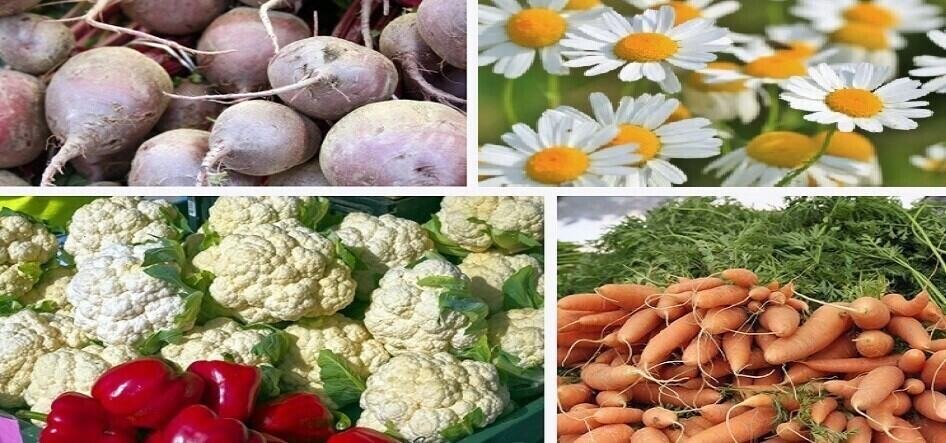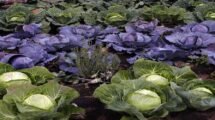Organic India, which is now controlled by FabIndia, is rapidly expanding its presence from organic tea, herbs, and supplements to organic staples, commodities, and food products.
‘So far, Organic India has focused on products such as herbal infusions and health supplements. However, we intend to expand into several other categories in the near future. We are entering the consumer kitchen, which is exciting for the company because it allows us to have a large impact on the consumer.’ said Subrata Datta, Group Managing Director (MD) of Organic India.
Organic India, founded in the 1990s, began by selling Holy Basil (Tulasi)infusions, but it was the first company to promote the concept of the whole herb by putting it entirely in a capsule – a concept that is now attracting worldwide.
Also Read: Online dry fruits trade startup to add more Agri-commodities to expanding its operations
Oils that are cold-pressed
Datta, who was named group MD of Organic India in February this year, said the company was expanding into organic staples and food items because it believes it has a network in all places, in addition to direct and indirect connections with farmers.
‘We want to get into as many organic staples as we can. We will provide red, black, brown, and white rice, as well as pulses and spices such as Turmeric, Chilli, and Jaggery. We’re also expanding into organic cooking oils and Nutri cereals,’ he explained.
Organic India also sells salt that is not certified because it is sourced naturally. Already, the company sells organic cold-pressed mustard, sesame (til/gingelly), and coconut oils. It will now provide sunflower and groundnut oils in addition to its current offerings.
Datta stated that the New Delhi-based company has launched organic quinoa and will now add a variety of millets, including Bajra, and that ‘we have gone ahead with phase launches in North, West, and South India. We’ll be entering the East in a few weeks.’
Farmer-consumer connection
Organic India will purchase these staples directly from farmers. ‘As their sales volume increases, our procurement of staples will have a greater impact on farmers lives. We will also have a large impact on the consumer. Through our products, we will connect the farmer to the consumer.’ he said.
The company buys directly from 2,300 farmers who grow them in clusters in Azamgarh, Uttar Pradesh, Jalore, Rajasthan, Neemuch, Madhya Pradesh, and Rahat on the Madhya Pradesh-Uttar Pradesh border. ‘Besides that, we buy indirectly from a much larger grower,’ said an Organic India official.
‘We assist farmers in converting to organic farming and provide technical assistance. We have our own agriculture team that guides them through the process of transitioning from non-organic to organic farming,’ Datta explained.
Organic India has the National Programme for Organic Production certification, so whoever it buys from will be certified if the regulations and norms are followed.
The first thing the company does is ensure farmers follow organic farming requirements. ‘We provide the know-how and expertise, as well as assistance with the certification process. If a farmer joins the organic cluster, we provide seeds, advice on how to increase yield, and assistance with compost farming to enrich the soil. It also encourages farmers to experiment with new herbs.’ he added.
Farming in groups
Before their produce is picked up by the firm, growers must go through a laborious process. Farmers are not allowed to use chemical fertilisers or pesticides during the first two years of the conversion, and they are not even allowed to sell their produce as organic. ‘We’ll have a problem even if a neighbouring farmer sprinkles pesticide. That’s why organic farming is done in groups,’ he explained.
Farmers throughout Rahat have converted to organic farming as a result of this. Farmers are now encouraged to grow substitutes for imported organic commodities, which is one of the positive effects of such a strategy.
‘We now have farmers who are successfully growing chamomile organically. It was imported earlier,’ the Organic India Group MD explained.
The company promoted chamomile, a daisy-like plant of the Asteraceae family used as herbal infusions for traditional medicine, after growing it experimentally on its environmentally-controlled farms.
‘We conducted tests to see how it grows in Indian farmers. Then we went to the farmers and told them that if they grew chamomile, we would buy it and help them increase their income by 50%. We also assisted them in growing it.’ he added.
Farmers who cultivate chamomile are now getting better returns and yields than they did with wheat or other foodgrains in the past.
Organic India is also attempting to make its packaging as environmentally friendly and technologically advanced as possible in order to minimise the impact on nature.
Also Read: Online agricultural products marketplace to expand to 75 villages
In response to a question, Datta stated that organic products as a percentage of total consumption were not even one per cent, but that conversion to organic farming is increasing by double digits. ‘Consumption of organic produce is rapidly increasing, especially since the Covid pandemic, as people have become more health-conscious.’ he said.
People are concerned with immunity and healthy living, so they have been gravitating toward organic products over the last year and a half, he added.


















Add Comment